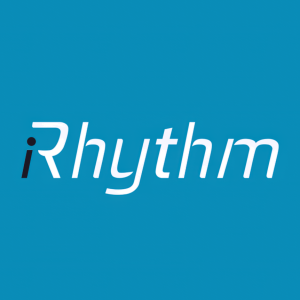New Data at the Asia Pacific Heart Rhythm Society (APHRS) 2025 Highlight the Performance of iRhythm’s Zio Long-Term Continuous Monitoring in an Asian Population
Rhea-AI Summary
iRhythm Technologies (NASDAQ:IRTC) presented a large-scale analysis of 408,470 U.S. patients at APHRS 2025 showing consistent performance of the Zio® long-term continuous ECG monitoring (LTCM) system across Asian and non-Asian groups.
Key metrics: Asians were 3.4% of the cohort; median wear time 13.6 vs. 13.0 days; analyzable ECG 12.9 vs. 12.2 days; AF detection 14.0% vs. 14.3%; total arrhythmia yield 79.8% vs. 82.9%; repeat testing 14.8% vs. 15.4%. Findings support generalizability of Zio LTCM and note AI algorithm approval by PMDA for Japan use.
Positive
- Cohort size of 408,470 patients
- Median wear time comparable: 13.6 vs. 13.0 days
- Analyzable ECG duration comparable: 12.9 vs. 12.2 days
- AF detection rates similar: 14.0% vs. 14.3%
- Low repeat monitoring rates: 14.8% vs. 15.4%
- AI ECG algorithm approved by PMDA for Japan
Negative
- Asian patients comprised only 3.4% of the cohort
- Results based on Asians residing in the U.S.; confirmation in Japanese patients needed
News Market Reaction
On the day this news was published, IRTC gained 4.78%, reflecting a moderate positive market reaction.
Data tracked by StockTitan Argus on the day of publication.
- iRhythm Technologies presented new data during the joint Asia Pacific Heart Rhythm Society (APHRS) and Japan Heart Rhythm Society (JHRS) scientific sessions.
- Large-scale analysis of more than 400,000 patients1 supports the consistency and generalizability of Zio long-term ECG monitoring (LTCM) performance across populations; median wear and analyzable time among patients identified as Asian (
3.4% of the cohort) were comparable to those of non-Asian patients, and findings were consistent with Zio LTCM performance previously reported in the published CAMELOT2 and AVALON3 studies.
SAN FRANCISCO, Nov. 21, 2025 (GLOBE NEWSWIRE) -- iRhythm Technologies, Inc. (NASDAQ:IRTC) today announced new data presented in a podium session at the 18th Asia Pacific Heart Rhythm Society (APHRS) and Japanese Heart Rhythm Society (JHRS) 2025 Joint Scientific Session in Yokohama, Japan, held November 12–15.
The investigators, led by Dr. Hiro Kawata, compared device compliance, performance, arrhythmia detection, and repeat-testing rates between Asians and non-Asians in a large cohort of U.S. patients. The study, titled “Comparative Analysis of Arrhythmia Detection and Clinical Outcomes in Asian and Non-Asian Populations Using Ambulatory Cardiac Monitoring,” analyzed 408,470 U.S. patients monitored between 2018 and 2022 using iRhythm’s Zio® long-term continuous ECG monitoring (LTCM) service for up to 14 days.
The analysis evaluated whether monitoring performance differs between patient groups, given that racial and cultural differences, including factors such as skin type, skin preparation, device tolerability, and lifestyle, may impact compliance and effectiveness in ambulatory cardiac monitoring.
Key Findings
- Comparable performance across populations: Median wear time (13.6 vs. 13.0 days) and analyzable ECG duration (12.9 vs. 12.2 days) were consistent between Asian and non-Asian patients, with Asians representing
3.4% of the full cohort. - Consistent diagnostic yield: Despite lower baseline prevalence of atrial fibrillation (AF), heart failure, and coronary artery disease, patients of Asian race showed a similar AF detection rate (
14.0% vs.14.3% ). The total arrhythmia yield was also comparable for both groups (79.8% vs.82.9% ). - Low repeat testing: Repeat monitoring rates were low and similar among Asian and non-Asian groups (
14.8% vs.15.4% ). This finding is consistent with published CAMELOT2 and AVALON3 analyses, which showed lower repeat testing with Zio long-term continuous monitoring compared with other ambulatory monitoring services.
The analysis leveraged Zio ECG data linked to medical claims data which enabled a comprehensive assessment of patient race, comorbidities, and outcomes across a large, diverse population. The findings demonstrate that racial and cultural characteristics—such as variations in skin type, daily activities, and device wear behaviors—were not associated with meaningful differences in wear time, analyzable time, or arrhythmia detection yield, supporting the consistency of long-term continuous ECG monitoring performance across diverse patient populations.
“These findings show that factors such as skin type, lifestyle, and adherence did not affect wear time, analyzable time, or arrhythmia detection, indicating the device performs equally well in Asian patients,” said Dr. Hiro Kawata, Consulting Medical Director for iRhythm Technologies and presenting author, who has practiced in both Japan and the United States. “The consistency observed between Asian and non-Asian patients affirms the reliability and generalizability of this 14-day continuous monitoring approach, such as with the Zio system, and contributes to the growing clinical experience supporting its use in Japan.”
“These findings provide encouraging evidence that the Zio ECG Recording and Analysis System performs reliably in Asian patients,” said Dr. Itsuro Morishima, Ogaki Municipal Hospital, Ogaki, Japan, and co-author. “Although these results are based on Asians residing in the United States and further confirmation is needed to determine whether the same performance is observed in Japanese patients, they provide valuable insight into its potential utility in Japan. When considered alongside the extensive global clinical and real-world evidence supporting the Zio long-term continuous monitoring system, these data provide important context for its use in Japanese clinical practice. As the use of Zio expands in Japan, the accumulating real-world experience will help guide appropriate adoption in everyday care.”
Expanding Evidence in Japan Amid Growing Need for Advanced Cardiac Monitoring
As Japan’s population ages, the burden of arrhythmias continues to rise, making the country the second-largest market worldwide for ambulatory cardiac monitoring, with approximately 1.6 million tests prescribed annually.
To support clinicians and patients in meeting the growing need for accurate arrhythmia detection and management, iRhythm introduced the Zio® ECG Recording and Analysis System in Japan (known as the Zio® ECG monitoring service outside of Japan) through exclusive distribution partner Senko Medical Instrument Co., Ltd. The Zio ECG system enables up to 14 days of continuous, uninterrupted ECG monitoring and leverages a deep-learned artificial intelligence (AI) algorithm approved by Japan’s Pharmaceuticals and Medical Devices Agency (PMDA). It represents a significant advancement over other ambulatory cardiac monitoring options in Japan, including wired Holter monitors that capture only 24 to 48 hours of data and other patch-based devices limited to 7 days or less of use.4
In Japan, iRhythm is collaborating with leading investigators to expand evidence across local patient populations, clinical settings, and monitoring practices. While these efforts are underway, the findings presented at APHRS 2025 provide meaningful context for clinicians and demonstrate how Zio LTCM performs in Asian patients.
This analysis also adds to the growing body of evidence supporting the clinical performance of the Zio LTCM service across diverse patient populations. The Cardiac Ambulatory Monitor EvaLuation of Outcomes and Time to Events (CAMELOT) study2 evaluated a U.S. Medicare patient population (
Together with more than 135 peer-reviewed publications, over 2 billion hours of curated heartbeat data, and more than 12 million patient reports generated since the company’s inception, these findings reinforce iRhythm’s ongoing efforts to advance the detection and management of cardiac arrhythmias worldwide.
To learn more about iRhythm and the Zio® LTCM service in Japan, please visit irhythmtech.com/jp/ja. For additional information about iRhythm, please visit its corporate website at irhythmtech.com.
Additional iRhythm Scientific Participation at APHRS 2025
iRhythm experts also contributed to APHRS 2025 sessions focused on advances in artificial intelligence (AI), long-term ECG monitoring, and population-level arrhythmia detection. Dr. Mintu Turakhia, Chief Medical and Scientific Officer and EVP of Advanced Technologies, delivered multiple oral presentations, including a keynote lecture on the future of AI for ECG interpretation and prediction. He also spoke on global perspectives in AI-enabled cardiac monitoring and the role of long-term monitoring in population health. In addition, Dr. Turakhia and Dr. Itsuro Morishima co-presented a session highlighting advancements in long-term ECG monitoring with the Zio system.
About iRhythm Technologies, Inc.
iRhythm is a leading digital health care company that creates trusted solutions that detect, predict, and prevent disease. Combining wearable biosensors and cloud-based data analytics with powerful proprietary algorithms, iRhythm distills data from millions of heartbeats into clinically actionable information. Through a relentless focus on patient care, iRhythm’s vision is to deliver better data, better insights, and better health for all. Outside of Japan, iRhythm offers its Zio® portfolio of cardiac monitoring solutions in Austria, the Netherlands, Spain, Switzerland, the United States, and the UK – and remains dedicated to bringing access to its advanced cardiac monitoring to even more patients, clinicians and healthcare systems around the world.
Media Contact
Kassandra Perry
mediarelations@irhythmtech.com
Investor Contact
Stephanie Zhadkevich
investors@irhythmtech.com
__________________________________
1 Kawata H et al. Clinical Performance of a Long-Term Continuous ECG Monitoring System in Asian and Non-Asian Patients: A Large-Scale Real-World Analysis of Over 400,000 Patients. Asia Pacific Heart Rhythm Society (APHRS) Scientific Sessions, November 13, 2025; Yokohama, Japan.
2 Reynolds MR, et al. Comparative effectiveness and healthcare utilization for ambulatory cardiac monitoring strategies in Medicare beneficiaries. Am Heart J. 2024 Mar;269:25-34
3 Russo P et al. Clinical and Economic Burden of Cardiac Arrhythmias in Patients with Type 2 Diabetes. J Health Med Econ Vol. 11 No. 1:151
4 Ikeda T, et al. 2025 Japanese Heart Rhythm Society / Japanese Circulation Society Consensus Statement on the Appropriate Use of Ambulatory and Wearable Electrocardiographs. J Arrhythm. 2025 May 23;41(3):e70059








